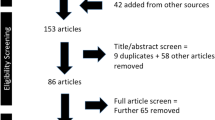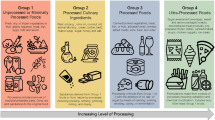Abstract
Purpose of Review
Flaxseed and its bioactive components have been associated with a decreased risk of colorectal cancer incidence and progression. This review aims to summarize recent research regarding the role of flaxseed and each of its major dietary bioactive components in reducing colorectal cancer.
Recent Findings
In both human and animal model experiments, flaxseed consumption had beneficial effects on colon physiology associated with reduction in colorectal cancer risk or occurrence. Considered separately, each of flaxseed’s major bioactive components, including fiber, alpha-linolenic acid, lignans, and other phytochemicals, is also associated with decreased risk of colonic neoplasms and regulation of cell growth through several potential mechanisms.
Summary
Collectively, experimental data suggests that consumption of flaxseed and/or its bioactive components may reduce colorectal cancer risk by a variety of mechanisms. Future studies should focus on the mechanisms by which whole flaxseed can prevent colorectal cancer.

Similar content being viewed by others
References
Papers of particular interest, published recently, have been highlighted as: • Of importance
American Cancer Society (2017). Key statistics for colorectal cancer. https://www.cancer.org/cancer/colon-rectal-cancer/about/key-statistics.html. Accessed 27 Apr 2017.
Siegel RL, Miller KD, Jemal A. Cancer statistics, 2015. CA Cancer J Clin. 2015;65:5–29. https://doi.org/10.3322/caac.21254.
American Cancer Society (2016). Colorectal cancer risk factors. https://www.cancer.org/cancer/colon-rectal-cancer/causes-risks-prevention/risk-factors.html . Accessed 25 May 2017.
Birt DF, Phillips GJ. Diet, genes, and microbes. Toxicol Pathol. 2014;42:182–8. https://doi.org/10.1177/0192623313506791.
Kuppusamy P, Yusoff MM, Maniam GP, Ichwan SJA, Soundharrajan I, Govindan N. Nutraceuticals as potential therapeutic agents for colon cancer: a review. Acta Pharm Sin B. 2014;4:173–81. https://doi.org/10.1016/j.apsb.2014.04.002.
Xie G, Raufman J-P. Role of the aryl hydrocarbon receptor in colon neoplasia. Cancers (Basel). 2015;7:1436–46. https://doi.org/10.3390/cancers7030847.
Barone M, Lofano K, De Tullio N, Licino R, Albano F, Di Leo A. Dietary, endocrine, and metabolic factors in the development of colorectal cancer. J Gastrointest Cancer. 2012;43:13–9. https://doi.org/10.1007/s12029-011-9332-7.
Mármol I, Sánchez-de-Diego C, Pradilla Dieste A, Cerrada E, Rodriguez Yoldi MJ. Colorectal carcinoma: a general overview and future perspectives in colorectal cancer. Int J Mol Sci. 2017;18 https://doi.org/10.3390/ijms18010197.
Xia M, Land H. Tumor suppressor p53 restricts Ras stimulation of RhoA and cancer cell motility. Nat Struct Mol Biol. 2007;14:215–23. https://doi.org/10.1038/nsmb1208.
Vaiopoulos AG, Athanasoula KC, Papavassiliou AG. Epigenetic modifications in colorectal cancer: molecular insights and therapeutic challenges. Biochim Biophys Acta Mol basis Dis. 2014;1842:971–80. https://doi.org/10.1016/j.bbadis.2014.02.006.
Lu Y, Chen J, Zheng J, Hu G, Wang J, Huang C, et al. Mucosal adherent bacterial dysbiosis in patients with colorectal adenomas. Sci Rep. 2016;6:26337. https://doi.org/10.1038/srep26337.
• O’Keefe SJD. Diet, microorganisms and their metabolites, and colon cancer. Nat Rev Gastroenterol Hepatol. 2016;13:691–706. https://doi.org/10.1038/nrgastro.2016.165. This reference offers a comprehensive review of the mechanisms of microbial metabolites modulated by diet on CRC prevention.
Lattimer JM, Haub MD. Effects of dietary fiber and its components on metabolic health. Nutrients. 2010;2:1266–89. https://doi.org/10.3390/nu2121266.
Calviello G, Serini S, Piccioni E. n-3 polyunsaturated fatty acids and the prevention of colorectal cancer: molecular mechanisms involved. Curr Med Chem. 2007;14:3059–69.
Lechner D, Kállay E, Cross HS. Phytoestrogens and colorectal cancer prevention. Vitam Horm. 2005;70:169–98. https://doi.org/10.1016/S0083-6729(05)70006-6.
Alshafe MM, Kassem SS, Abdelkader MM, Hanafi EM. Flaxseed as functional food. Res J Pharm Biol Chem Sci. 2015;6:1944–51. https://doi.org/10.1002/jsfa.898.
• Kajla P, Sharma A, Sood DR. Flaxseed—a potential functional food source. J Food Sci Technol. 2015;52:1857–71. https://doi.org/10.1007/s13197-014-1293-y. Additional details of the composition and properties of flaxseed are reviewed.
Vaisey-Genser M, Morris DH. History of the cultivation and uses of flaxseed. In: Muir AD, Westcott ND, editors. Flax: the genus Linum. New York: Taylor and Francis Ltd; 2003. p. 1–21.
Hall C, Tulbek MC, Flaxseed XY. Adv Food Nutr Res. 2006;51:1–97.
Flax Canada 2015 Inc (2009). GRAS Notice 000280: Whole and milled flaxseed. https://www.fda.gov/downloads/Food/IngredientsPackagingLabeling/GRAS/NoticeInventory/ucm269248.pdf. Accessed 11 Apr 2017.
Hernández-Salazar M, Guevara-González RG, Cruz-Hernández A, Guevara-Olvera L, Bello-Pérez LA, Castaño-Tostado E, et al. Flaxseed (Linum usitatissimum L.) and its total non-digestible fraction influence the expression of genes involved in azoxymethane-induced colon cancer in rats. Plant Foods Hum Nutr. 2013;68:259–67. https://doi.org/10.1007/s11130-013-0372-y.
Bommareddy A, Arasada BL, Mathees DP, Dwivedi C. Chemopreventive effects of dietary flaxseed on colon tumor development. Nutr Cancer. 2006;54:216–22. https://doi.org/10.1207/s15327914nc5402_8.
Bommareddy A, Zhang X, Schrader D, Kaushik RS, Zeman D, Matthees DP, et al. Effects of dietary flaxseed on intestinal tumorigenesis in ApcMin mouse. Nutr Cancer. 2009;61:276–83. https://doi.org/10.1080/01635580802419764.
• Gomides AF de F, Gonçalves RV, de Paula SO, Ferreira CL de LF, Comastri DS, Peluzio M do CG. Defatted flaxseed meal prevents the appearance of aberrant crypt foci in the colon of mice increasing the gene expression of p53. Nutr Hosp 2015;31:1675–1681. doi:https://doi.org/10.3305/nh.2015.31.4.8279. Preclinical evidence of the role of defatted flaxseed intake on the prevention of CRC development is presented. Discussion of possible molecular mechanisms and interactions with the gut microbiota is offered.
Zeng H, Lazarova DL, Bordonaro M. Mechanisms linking dietary fiber, gut microbiota and colon cancer prevention. World J Gastrointest Oncol. 2014;6:41–51. https://doi.org/10.4251/wjgo.v6.i2.41.
Hoy M, Goldman J (2014). Fiber intake of the the U.S. population: what we eat in America. NHANES 2009-2010;12:1–6. https://www.ars.usda.gov/ARSUserFiles/80400530/pdf/DBrief/12_fiber_intake_0910.pdf. Accessed 11 Dec 2017.
Trumbo P, Schlicker S, Yates AA, Poos M. Dietary reference intakes for energy, carbohydrate, fiber, fat, fatty acids, cholesterol, protein and amino acids. J Am Diet Assoc. 2002:1621–30. https://doi.org/10.1016/S0002-8223(02)90346-9.
Singh KK, Mridula D, Rehal J, Barnwal P. Flaxseed: a potential source of food, feed and fiber. Crit Rev Food Sci Nutr. 2011;51:210–22. https://doi.org/10.1080/10408390903537241.
Morris DH (2007). Flax—a health and nutrition primer. 4th ed. Flax Council of Canada
Dahl WJ, Lockert EA, Cammer AL, Whiting SJ. Effects of flax fiber on laxation and glycemic response in healthy volunteers. J Med Food. 2005;8:508–11. https://doi.org/10.1089/jmf.2005.8.508.
Xu J, Zhou X, Chen C, Deng Q, Huang Q, Yang J, et al. Laxative effects of partially defatted flaxseed meal on normal and experimental constipated mice. BMC Complement Altern Med. 2012;12:14. https://doi.org/10.1186/1472-6882-12-14.
Fodje AML, Chang PR, Leterme P. In vitro bile acid binding and short-chain fatty acid profile of flax fiber and ethanol co-products. J Med Food. 2009;12:1065–73. https://doi.org/10.1089/jmf.2008.0242.
Lin B, Gong J, Wang Q, Cui S, Yu H, Huang B. In-vitro assessment of the effects of dietary fibers on microbial fermentation and communities from large intestinal digesta of pigs. Food Hydrocoll. 2011;25:180–8. https://doi.org/10.1016/j.foodhyd.2010.02.006.
Al Cunnane SE. Of traditional flaxseed in healthy. Am J Clin Nutr. 1995;61:62–8.
Burdge GC, Calder PC. Conversion of α-linolenic acid to longer-chain polyunsaturated fatty acids in human adults. Reprod Nutr Dev. 2005;45:581–97. https://doi.org/10.1051/rnd:2005047.
Tyagi A, Kumar U, Reddy S, Santosh VS, Mohammed SB, Ehtesham NZ, et al. Attenuation of colonic inflammation by partial replacement of dietary linoleic acid with α-linolenic acid in a rat model of inflammatory bowel disease. Br J Nutr. 2012;108:1612–22. https://doi.org/10.1017/S0007114511007197.
Hassan A, Ibrahim A, Mbodji K, Coeffier M, Ziegler F, Bounoure F, et al. An -linolenic acid-rich formula reduces oxidative stress and inflammation by regulating NF- B in rats with TNBS-induced colitis. J Nutr. 2010;140:1714–21. https://doi.org/10.3945/jn.109.119768.
Dwivedi C, Natarajan K, Matthees DP. Chemopreventive effects of dietary flaxseed oil on colon tumor development. Nutr Cancer. 2005;51:52–8. https://doi.org/10.1207/s15327914nc5101_8.
Oikarinen SI, Pajari A-M, Salminen I, Heinonen S-M, Adlercreutz H, Mutanen M. Effects of a flaxseed mixture and plant oils rich in alpha-linolenic acid on the adenoma formation in multiple intestinal neoplasia (Min) mice. Br J Nutr. 2005;94:510–8.
Almendingen K, Höstmark AT, Fausa O, Mosdöl A, Aabakken L, Vatn MH. Familial adenomatous polyposis patients have high levels of arachidonic acid and docosahexaenoic acid and low levels of linoleic acid and α-linolenic acid in serum phospholipids. Int J Cancer. 2007;120:632–7. https://doi.org/10.1002/ijc.22337.
Szachowicz-Petelska B, Sulkowski S, Figaszewski ZA. Altered membrane free unsaturated fatty acid composition in human colorectal cancer tissue. Mol Cell Biochem. 2007;294:237–42. https://doi.org/10.1007/s11010-006-9264-x.
Baró L, Hermoso JC, Núñez MC, Jiménez-Rios JA, Gil A. Abnormalities in plasma and red blood cell fatty acid profiles of patients with colorectal cancer. Br J Cancer. 1998;77:1978–83.
Kojima M, Wakai K, Tokudome S, Suzuki K, Tamakoshi K, Watanabe Y, et al. Serum levels of polyunsaturated fatty acids and risk of colorectal cancer: a prospective study. Am J Epidemiol. 2005;161:462–71. https://doi.org/10.1093/aje/kwi066.
Daniel CR, McCullough ML, Patel RC, Jacobs EJ, Flanders WD, Thun MJ, et al. Dietary intake of omega-6 and omega-3 fatty acids and risk of colorectal cancer in a prospective cohort of U.S. men and women. Cancer Epidemiol Biomark Prev. 2009;18:516–25. https://doi.org/10.1158/1055-9965.EPI-08-0750.
Pearl DS, Masoodi M, Eiden M, Brümmer J, Gullick D, Mckeever TM, et al. Altered colonic mucosal availability of n-3 and n-6 polyunsaturated fatty acids in ulcerative colitis and the relationship to disease activity. J Crohn's Colitis. 2014;8:70–9. https://doi.org/10.1016/j.crohns.2013.03.013.
Fernández-Bañares F, Esteve M, Navarro E, Cabré E, Boix J, Abad-Lacruz A, et al. Changes of the mucosal n3 and n6 fatty acid status occur early in the colorectal adenoma-carcinoma sequence. Gut. 1996;38:254–9.
Bommareddy A, Zhang XY, Kaushik RS, Dwivedi C. Effects of components present in flaxseed on human colon adenocarcinoma Caco-2 cells: possible mechanisms of flaxseed on colon cancer development in animals. Drug Discov Ther. 2010;4:184–9.
Chamberland JP, Moon H-S. Down-regulation of malignant potential by alpha linolenic acid in human and mouse colon cancer cells. Familial Cancer. 2015;14:25–30. https://doi.org/10.1007/s10689-014-9762-z.
Goyal A, Sharma V, Upadhyay N, Gill S, Sihag M. Flax and flaxseed oil: an ancient medicine & modern functional food. J Food Sci Technol. 2014;51:1633–53. https://doi.org/10.1007/s13197-013-1247-9.
Katare C, Saxena S, Agrawal S, Prasad G, Nutrition BPS, Sciences F. Flax seed: a potential medicinal food. J Nutr Food Sci. 2012;2:1–8. https://doi.org/10.4172/2155-9600.1000120.
Wang LQ, Meselhy MR, Li Y, Qin GW, Hattori M. Human intestinal bacteria capable of transforming secoisolariciresinol diglucoside to mammalian lignans, enterodiol and enterolactone. Chem Pharm Bull. 2000;48:1606–10.
Woting A, Clavel T, Loh G, Blaut M. Bacterial transformation of dietary lignans in gnotobiotic rats. FEMS Microbiol Ecol. 2010;72:507–14. https://doi.org/10.1111/j.1574-6941.2010.00863.x.
Kuijsten A, Arts ICW, van’t Veer P, Hollman PCH. The relative bioavailability of enterolignans in humans is enhanced by milling and crushing of flaxseed. J Nutr. 2005;135:2812–6.
Clavel T, Doré J, Blaut M. Bioavailability of lignans in human subjects. Nutr Res Rev. 2006;19:187–96. https://doi.org/10.1017/S0954422407249704.
Danbara N, Yuri T, Tsujita-Kyutoku M, Tsukamoto R, Uehara N, Tsubura A. Enterolactone induces apoptosis and inhibits growth of Colo 201 human colon cancer cells both in vitro and in vivo. Anticancer Res. 2005;25:2269–76.
Johnsen NF, Olsen A, Thomsen BLR, Christensen J, Egeberg R, Bach Knudsen KE, et al. Plasma enterolactone and risk of colon and rectal cancer in a case–cohort study of Danish men and women. Cancer Causes Control. 2010;21:153–62. https://doi.org/10.1007/s10552-009-9445-5.
Kuijsten A, Arts ICW, Hollman PCH, van’t Veer P, Kampman E. Plasma enterolignans are associated with lower colorectal adenoma risk. Cancer Epidemiol Biomark Prev. 2006;15:1132–6. https://doi.org/10.1158/1055-9965.EPI-05-0991.
Smeds AI, Hakala K, Hurmerinta TT, Kortela L, Saarinen NM, Mäkelä SI. Determination of plant and enterolignans in human serum by high-performance liquid chromatography with tandem mass spectrometric detection. J Pharm Biomed Anal. 2006;41:898–905. https://doi.org/10.1016/j.jpba.2005.12.036.
Qu H, Madl RL, Takemoto DJ, Baybutt RC, Wang W. Lignans are involved in the antitumor activity of wheat bran in colon cancer SW480 cells. J Nutr. 2005;135:598–602.
• Curry CA (2015). Chemoprotective effects of flaxseed lignans enterodiol and enterolactone in non-transformed colonocytes. http://hdl.handle.net/1969.1/156226. Accessed 11 Apr 2017. This study followed a mechanistic approach to elucidate the role of flaxseed lignans in healthy colonocytes.
Weige CC, Allred KF, Allred CD. Estradiol alters cell growth in nonmalignant colonocytes and reduces the formation of preneoplastic lesions in the colon. Cancer Res. 2009;69:9118–24. https://doi.org/10.1158/0008-5472.CAN-09-2348.
Sieger A, Nogala-Kalucka M, Lampart-Szczapa E. The content and antioxidant activity of phenolic compounds in cold-pressed plant oils. J Food Lipids. 2008;15:137–49. https://doi.org/10.1111/j.1745-4522.2007.00107.x.
Kawabata K, Yamamoto T, Hara A, Shimizu M, Yamada Y, Matsunaga K, et al. Modifying effects of ferulic acid on azoxymethane-induced colon carcinogenesis in F344 rats. Cancer Lett. 2000;157:15–21. https://doi.org/10.1016/S0304-3835(00)00461-4.
Author information
Authors and Affiliations
Corresponding author
Ethics declarations
Conflict of Interest
Jennifer A.A. DeLuca, Erika L. Garcia-Villatoro, and Clinton D. Allred declare they have no conflict of interest.
Human and Animal Rights and Informed Consent
This article does not contain any studies with human or animal subjects performed by any of the authors.
Additional information
Jennifer A.A. DeLuca and Erika L. Garcia-Villatoro are co-first authors
This article is part of the Topical Collection on Integrative Care
Rights and permissions
About this article
Cite this article
DeLuca, J.A.A., Garcia-Villatoro, E.L. & Allred, C.D. Flaxseed Bioactive Compounds and Colorectal Cancer Prevention. Curr Oncol Rep 20, 59 (2018). https://doi.org/10.1007/s11912-018-0704-z
Published:
DOI: https://doi.org/10.1007/s11912-018-0704-z




